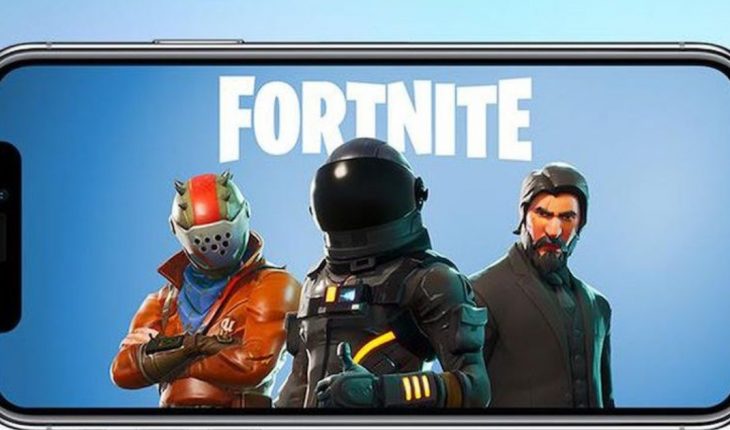There is a legal battle of epic proportions that will decide part of the future of digital distribution not only on mobile devices but also on the rest of the platforms. This afternoon Epic Games, the giant behind the Fortnite phenomenon, sued Apple for “monopoly practices” after the apple company dropped the App Store game for violating its rules. The novel began on the morning of today, when Epic Games announced a permanent downgrade on Fortnite’s V-Bucks, the in-game currency. So far 1000 V-Bucks cost $10 on all platforms (consoles, PCs and mobiles), but with the rebate the same amount of coins would cost eight dollars. The particularity is that to take advantage of the offer on iOS or Android mobile devices players would have to opt for an alternative method of collection that owns Epic Games, rather than making the transaction through the Apple store or Google – thus avoiding paying the 30 percent commission charged by companies for each purchase. Those who did not want to make the payment through the Epic system could continue to use the above method and pay the extra two dollars.
The alternative payment system announced by Epic Games Picture: Epic Games
“Today we also introduce you to a new way to pay on iOS and Android devices: direct payments to Epic. When you choose to use direct payments to Epic you save up to 20%, as Epic passes processing savings to you.” In the frequent questions section of the new promotion page, Epic Games anticipated Apple’s possible response by saying that it considered it fair for each app to handle transactions through its system, and that any concerns about user safety would be unmotivated by the company’s history, which manages its own store.” Thousands of Apple-approved App Store apps accept direct payments, include commonly used apps such as Amazon, Grubhub, Nike SNKRS, Best Buy, DoorDash, Fandango, MacDonads, Uber, Lyft, and StubHub,” Epic argued.” We believe that all developers should be free to offer direct payments in all applications. By operating on open platforms and operating the Epic Games store, Epic has successfully processed more than $1.6 billion of direct payments, and uses encryption that the industry relies on and security measures to protect customer transactions.” Tim Sweeney, the founder of Epic Games, has been since the launch of his store (which charges 12 percent commission that can be reduced if using the Unreal Engine) a vocal detractor of the practices of Steam, Apple, Google and the rest of the manufacturers. In fact Fortnite took two years to be officially released on the Android store and until then used its own launcher that had to be downloaded and installed manually.
Apple has outlawed the metaverse. The principle they state, taken literally, would rule out all cross-platform ecosystems and games with user created modes: not just XCloud, Stadia, and GeForce NOW, but also Fortnite, Minecraft, and Roblox. https://t.co/OAGC7cXfSl — Tim Sweeney (@TimSweeneyEpic)
August 6, 2020
But logic failed and Apple, claiming a (real) violation of the terms and conditions, deregistered Fortnite from the App Store. According to the company the Epic games system and its application “was not analyzed or approved”, something that is also prohibited in the store guide.” Today, Epic Games made the unfortunate decision to violate App Store rules that apply equally to all developers and designers to keep our store safe for users,” says the statement sent by Apple to the portals. “Epic enabled a feature in its app that was not analyzed or approved by Apple, and did so with the manifest intent to violate App Store rules regarding in-app payments that apply to all developers who sell services or digital items.” Apple’s Guide to the App Store is clear that apps cannot offer alternative payment methods of any kind: “If you want to unlock any in-app features (e.g. subscriptions, in-game currencies, access to premium content, or release full versions) you must use in-app purchases. Apps cannot use their own mechanisms to unlock content or functionality, such as license keys, augmented reality markers, QR codes, etc.” That Epic Games didn’t submit the update for analysis means the company was waitingApple would deregister the app to continue with its “plan.” When Apple responded and removed Fortnite from the store leaving millions of users without the ability to update the game, Sweeney and team launched a network smear campaign with the Free Fortnite hashtag that quickly became trending.
“Unite in the fight against App Store on social media with Free Fortnite.”
“Apple has blocked Fortnite from the App Store, eliminating the ability of everyone to install and update the game on iOS devices, and forcing Epic Games to ‘remove Epic’s direct payment feature,’ says the call posted on the official site. “Apple keeps prices high so it can collect 30 percent of your payments, and is blocking Fortnite to prevent Epic from shifting direct payment savings to you!”” Unite in the fight against App Store on social media with Free Fortnite.” However, as The Washington Post journalist Gene Park noted, it is still possible to make purchases within Fortnite through the two methods and the game remains playable. That means it will be starting with the next update when iOS users won’t be able to keep up with the rest of the platforms.
Ok I just bought 2,000 v bucks using the epic discount and the regular Apple price. Both still worked. Apple can still collect fortnite money. pic.twitter.com/CgK6AYBbnm — Gene Park (@GenePark)
August 13, 2020
But as not only of collective campaigns live by corporations, Epic Games filed a lawsuit against Apple in which it accuses the manufacturer of monopoly practices and of controlling the distribution and payments market of the iOS store preventing fair competition.” Epic files this lawsuit to end the unfair and anti-competitive actions that Apple illegally executes to maintain its monopoly in two different multimillion-dollar markets: the iOS App Distribution Market and the Payment Processing Market within iOS apps,” the lawsuit says.” the lawsuit says.” Epic does not seek monetary compensation from the Court for the damages suffered. Epic is also not seeking preferential treatment as an individual company. Instead Epic is looking for a change that allows fair competition in these two markets that directly affect millions of consumers and tens of thousands, if not more, of app developers.” And to finish nailing the dagger and confirm that it was all a Machiavellian plan to expose Apple’s practices on a large scale and put the weight on users (mostly young), the plaintiff posted a video titled “Nineteen Eighty-Fortnite” (One Thousand Nine hundred and Eighty and Fortnite) that emulates apple’s iconic 1984 warning in its inception, when the small business came out to face the IBM giant.
The video ends with a text that reads:”Epic Games has challenged the App Store Monopoly. In response, Apple blocked Fortnite from billions of devices. Join the fight to prevent 2020 from becoming ‘1984’.” The original video, directed by Ridley Scot:
Of course the situation is not the same. At the time Apple was a rising company trying to penetrate a market dominated by IBM, and this time Epic Games is a company valued at $1.7 billion putting users as the front line of defense in its fight against a giant that exceeds two trillion dollars of net worth. The outcome will be important to the rest of the industry, particularly because after the hearings to discuss monopoly practices to which the U.S. government subjected giants such as Facebook, Google, Facebook and Apple itself, computer giants are at a particular time—not weakness, but exposing.
In this note:





